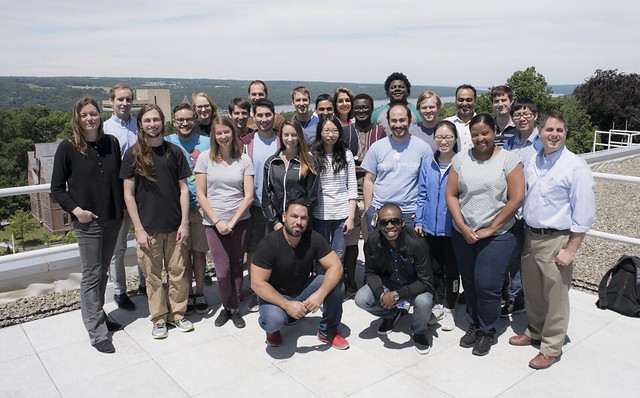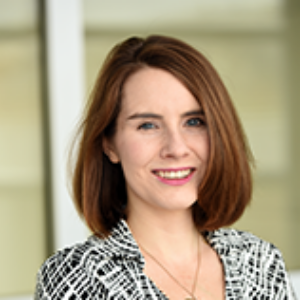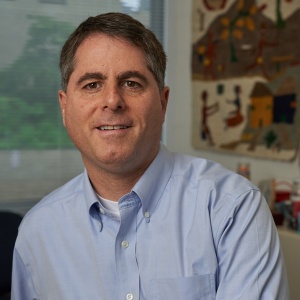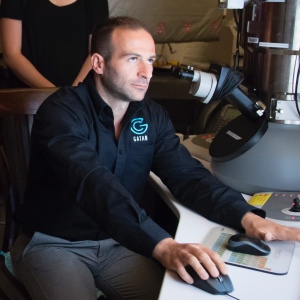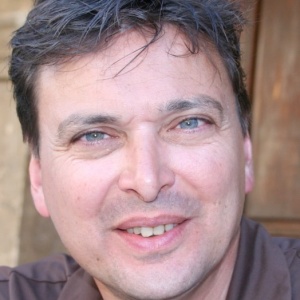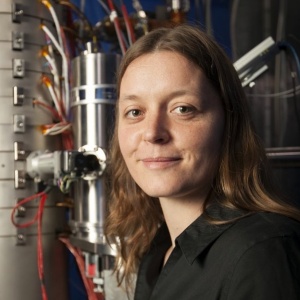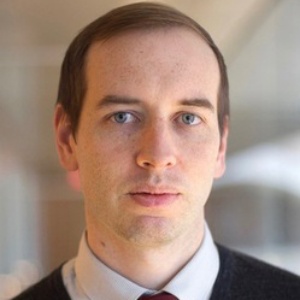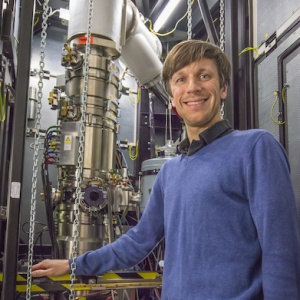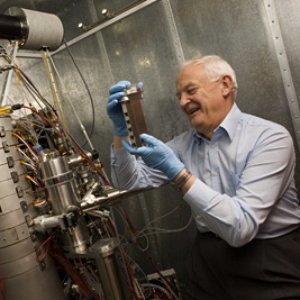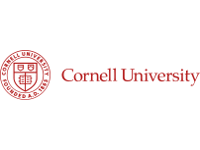Click on titles to view videos
|
Lynne Vincent Lynne Vincent holds an M.S. and Ph.D. in Organizational Behavior from Cornell University, School of Industrial and Labor Relations. She is currently an assistant professor at the Whitman School of Management at Syracuse University. Before joining Syracuse University, she was a postdoc at the Owen Graduate School of Management at Vanderbilt University. Her research focuses on the moral and social implications of creativity for individuals, groups, and organizations. She teaches undergraduate courses on management and organizational behavior at Syracuse University.
David Muller David Muller is the Samuel B. Eckert Professor of Engineering in Applied and Engineering Physics at Cornell University and the co-director of the Kavli Institute at Cornell for Nanoscale Science. A major focus of David's research has been developing quantitative electron microscopy methods for measuring and predicting materials properties. His work has demonstrated how electronic-structure changes on the atomic scale can control the macroscopic behavior of systems as diverse as turbine blades, fuel cells or transistors. His current research interests include the physics of renewable energy materials, the atomic-scale control of materials to create electronic phases that cannot exist in the bulk, and developing the hardware and algorithms for "big data" acquisition and processing from high-bandwith pixelated electron microscope detectors. He joined the Applied and Engineering Physics faculty at Cornell University in 2003, is a graduate of the University of Sydney and completed his Ph.D. in physics at Cornell in 1996.
Paolo Longo Dr. Paolo Longo is the Business Development Manager – Analytical Products at Gatan, Inc. He received his PhD in 2008 from the University of Glasgow, UK, and Physics Post-doctoral training at the University of Glasgow. His positions and honors include: April 2016 to present: Business Development Manager – Analytical Products, Gatan Inc; May 2014 to present: Applications and Training Manager, Gatan Inc; March 2011 to May 2014: TEM Applications Scientist, Gatan Inc; Feb 2010 to Feb 2011: Technical & Sales Representative, Oil Gas & Chemicals division, SGS, Genoa, Italy; Jan 2008 – Feb 2010: Research Assistant, Department of Physics & Astronomy, University of Glasgow, UK.
Frank de Groot Frank de Groot is professor of X-ray Spectroscopy in the Department of Chemistry at Utrecht University. His work reflects a concern with the theoretical and the experimental aspects of X-ray spectroscopy, including both fundamental studies and applications. His current interest is in the use of X-ray spectroscopies for the study of the electronic and magnetic structure of condensed matter and heterogeneous catalysts under working conditions.
Lena F. Kourkoutis Lena F. Kourkoutis is an Assistant Professor of Applied and Engineering Physics and James C. and Rebecca Q. Morgan Sesquicentennial Faculty Fellow at Cornell University. Dr. Kourkoutis received her undergraduate degree in Physics from the University of Rostock, Germany in 2003, and then moved to Ithaca where she was awarded a Ph.D. in 2009. As a Humboldt Research Fellow, she spent 2011-2012 exploring cryo-electron microscopy in the Molecular Structural Biology Group at the Max Planck Institute of Biochemistry in Martinsried, Germany. She returned to Cornell University as a Postdoctoral Associate in 2012 and joined the Applied and Engineering Faculty in 2013.
Robert Hovden Robert Hovden received his Ph.D. in Applied Physics at Cornell University Before joining the Michigan University Department of Materials Science and Engineering as an Assistant Professor in Winter 2017. Hovden’s research can be broadly described as “the photography of atoms—a privilege afforded by precisely sculpted sub-Angstrom electron beams.” Utilizing electron microscopy, he unveils new understanding of how structure at the atomic and nanoscale determines material properties at the macroscale—spanning a wide class of systems including two-dimensional materials, next-generation energy devices, and biominerals.
Peter Ercius Peter Ercius graduated from Cornell University with a B.S. in applied and engineering physics in 2003. He remained at Cornell and completed a Ph.D. in applied and engineering physics with Professor David A. Muller in 2009. His dissertation project focused on three-dimensional (3D) electron tomography of semiconductor devices using scanning transmission electron microscopy (STEM). He then joined the NCEM facility as a collaborative postdoctoral researcher for 2 years before being hired as a permanent Staff Scientist of the Molecular Foundry. Peter is currently in charge of the electron tomography program at NCEM and the dual aberration-corrected TEAM 0.5. Dr. Ercius is a leading expert in electron tomography and collaborates with users of the Molecular Foundry on a wide range of projects including S/TEM atomic resolution imaging, electron tomography, 4D-STEM scanning diffraction, in situ liquid TEM, and electron energy loss spectroscopy (EELS).
John Silcox John Silcox joined the Cornell faculty in 1961 and has twice served as director of the School of Applied and Engineering Physics, and as director of the Materials Science Center. He spent sabbatical leaves as a Guggenheim fellow in France and England in 1967–68, at Bell Laboratories in 1974–75, and at Arizona State University in the spring term of 1983. He is a fellow of the American Physical Society and a member and past president of the Electron Microscopy Society of America, from whom he received the 1996 Distinguished Scientist Award in physical sciences. For 1978 through 1982 he served on the Solid State Sciences Committee of the National Academy of Sciences/National Research Council. In 1988 he was named the David E. Burr Professor of Engineering. Silcox has been a member and chair of the Materials Research Advisory Committee for the National Science Foundation. |

